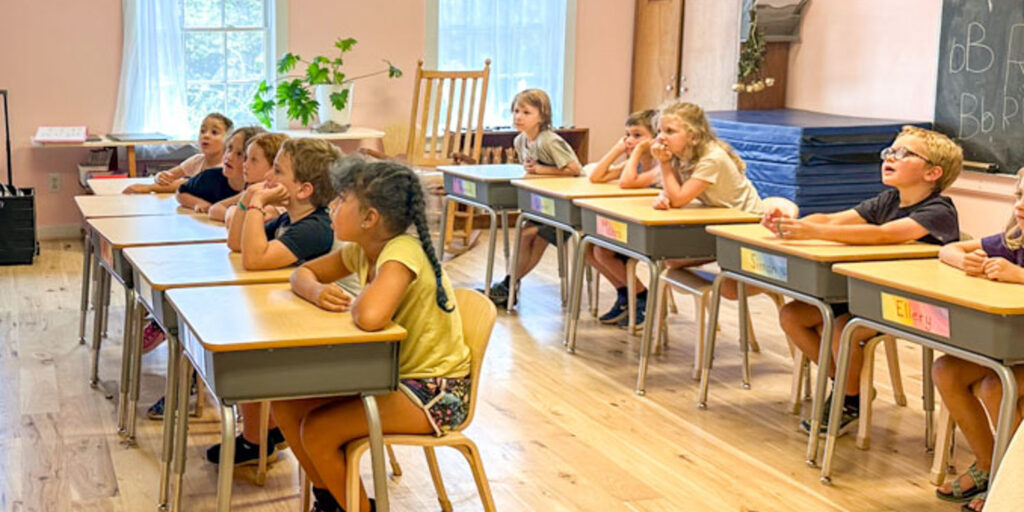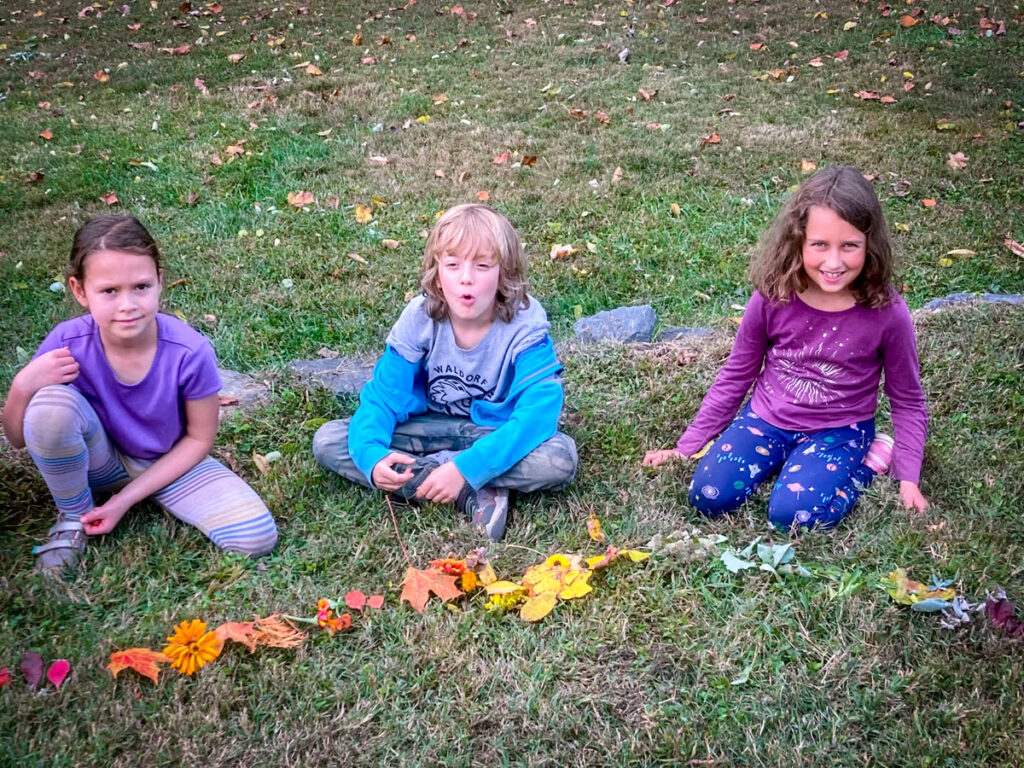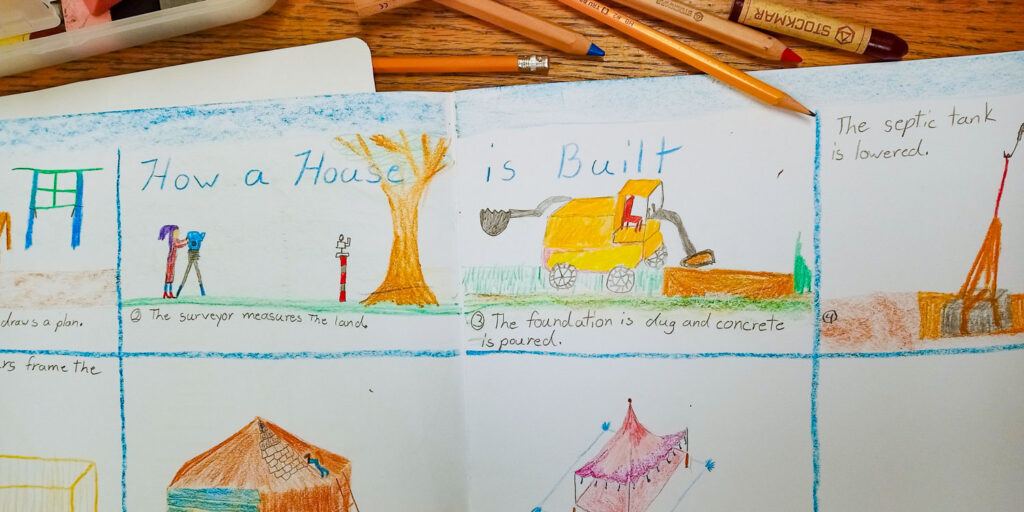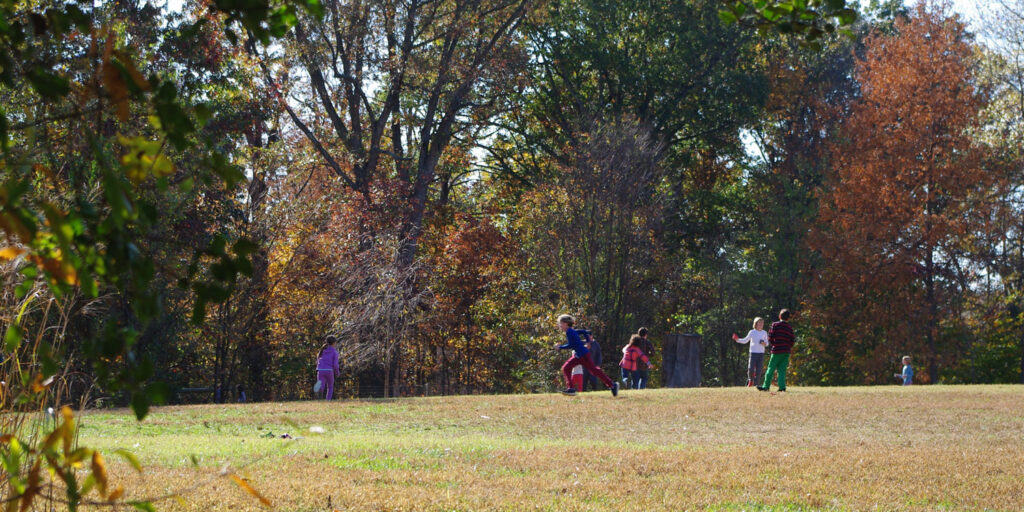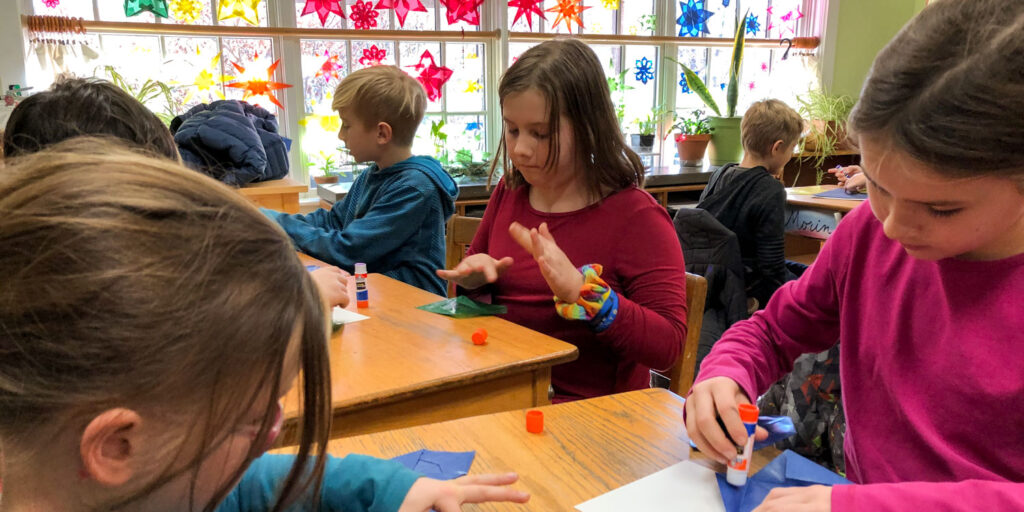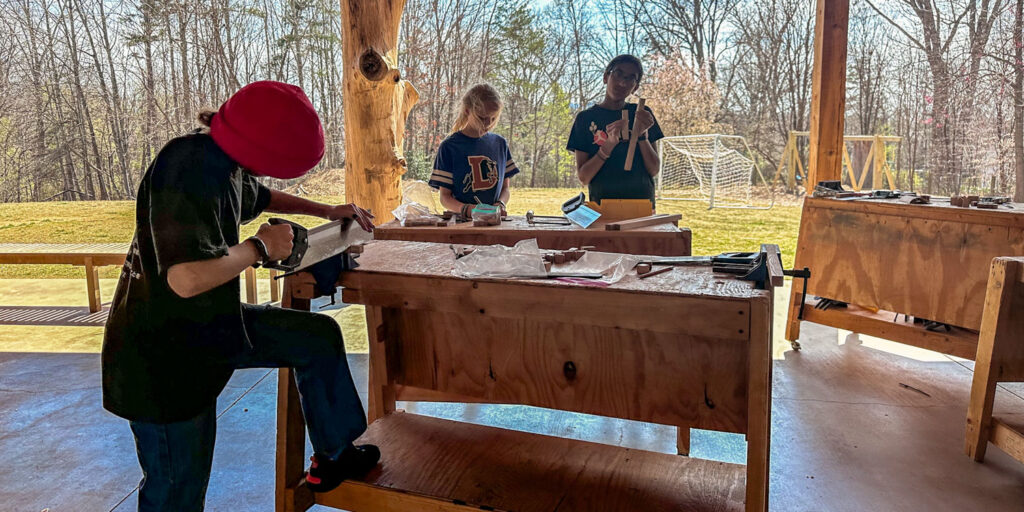The First Grade marks a new stage of development, wherein children can begin to shift their focus from developing their physical bodies and becoming part of a group to the new challenge of academic learning.
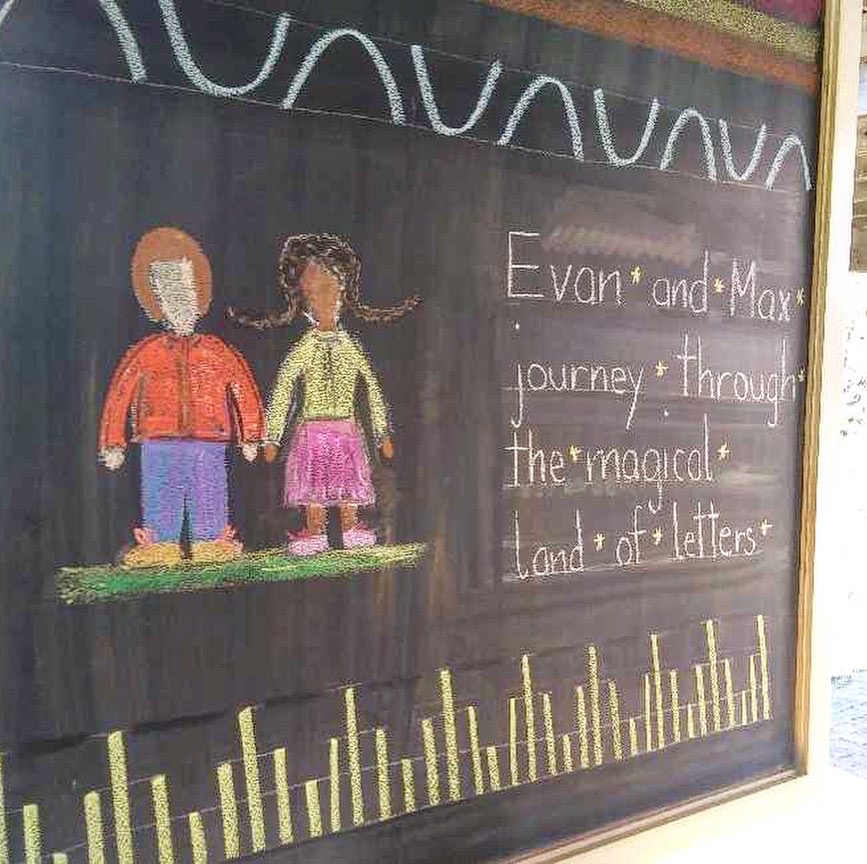
First grade at the Charlottesville Waldorf School launches an eight-year journey. Leaving Kindergarten, children add thoughtful work to imaginary play. Friendships begin and broaden. New group skills invite wholeness, each child playing their role. The teacher, familiar with each child even before the year begins, forms lessons around daily rhythms; these structure and comfort the children in this new beginning.
When children enter the First Grade, they know that it is a Big Deal, and we do our best to show them that we understand that. We ask them to stand up straight and tall, so we can almost see those crowns on their heads. We ask them to sit at desks for part of the day. And we continue to give them meaningful work – although the work has changed to meet their Grade School selves.
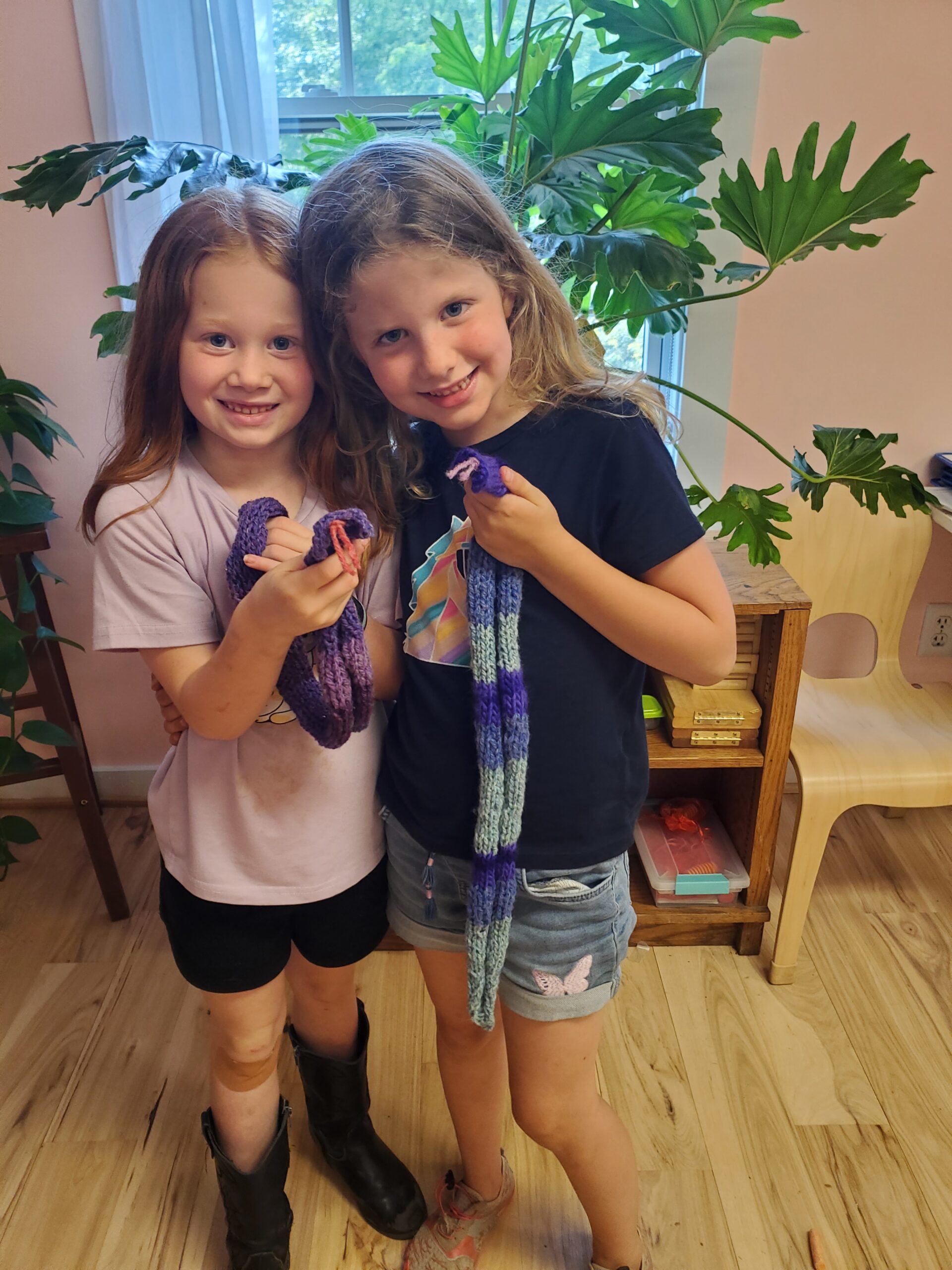
Language & Literature
- Fairy tales and folktales
- Introduction of the upper and lowercase letters via fairy tales and stories from cultures around the world
- Narrative sequencing and comprehension through retelling of stories
- Learning consonant sounds by connecting them with forms of objects found in the physical world, such as the shape of a wave for “w”
- Introduction to vowel sounds through expression of inner moods, such as awe or surprise
- Building phonological awareness: rhyming, alliteration, syllable segmenting and substitution, and phoneme segmenting and substitution; exploring consonant-vowel-consonant words (short vowels), consonant digraphs, consonant blends, silent “e” words, and vowel teams
- Simple word construction, with a focus on consonant-vowel-consonant words
- Simple sentence construction (beginning sentences with a capital letter, ending with a period)
- Writing whole class and individual compositions to retell an event or a portion of a story
- Sight reading of sentences and stories, as well as known verses or speech exercises
- Practice of common sight words
- Reading decodable books
Mathematics
- Quality of whole numbers, one through ten
- Basic geometric shapes (square, triangle, circle)
- Writing and reading of Roman numerals I to X and Arabic numerals 1 to 100
- subitizing
- Counting to 120 by ones and to 100 by fives, and tens
- Counting backwards from 50
- Skip counting by twos, threes, fours, fives, and sixes up to twelve times each number
- Even and odd numbers
- Addition, multiplication, subtraction, and division with whole numbers up to 24, from whole to parts and from parts to whole (e.g., 15 = 3 x 5 and 3 x 5 = 15) in horizontal format
- Addition and subtraction facts to 10, doubles, one less, one more, two less and two more
- Ordinal numbers
- Place value: tens and ones
- Estimating
Science
- Nature stories
Specialty Subjects
- Spanish: vocabulary, pronunciation, culture
- Handwork: knitting and purling on two needles
- Visual Arts: painting, guided drawing, beeswax modeling
- Music: singing, moving, pentatonic flute
- Movement: games and cooperative activities involving locomotor skills, directionality, and spatial awareness.
- Community Class: communication skills, listening, feelings, likes and dislikes, family and neighborhood, similarities and differences

